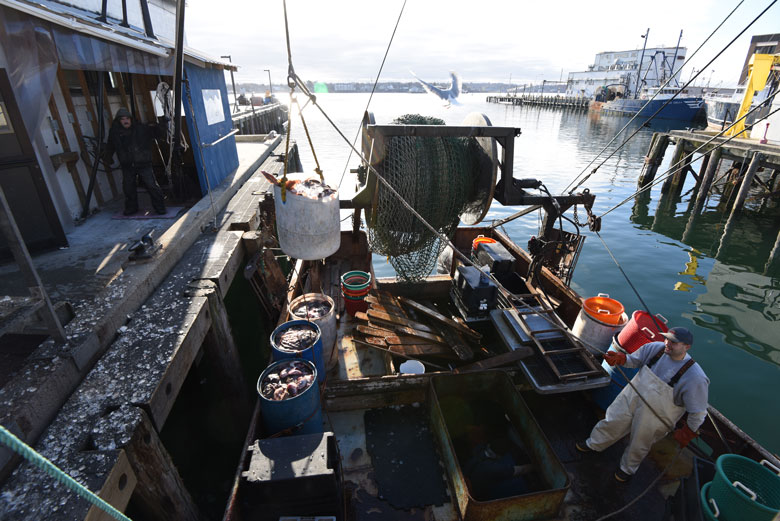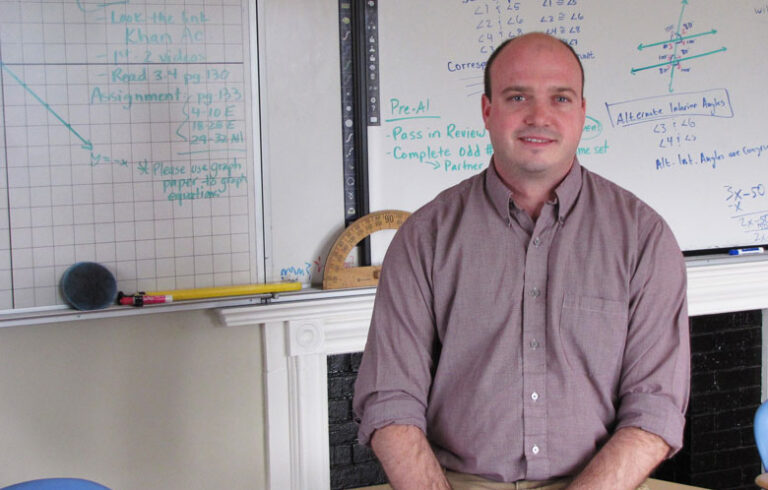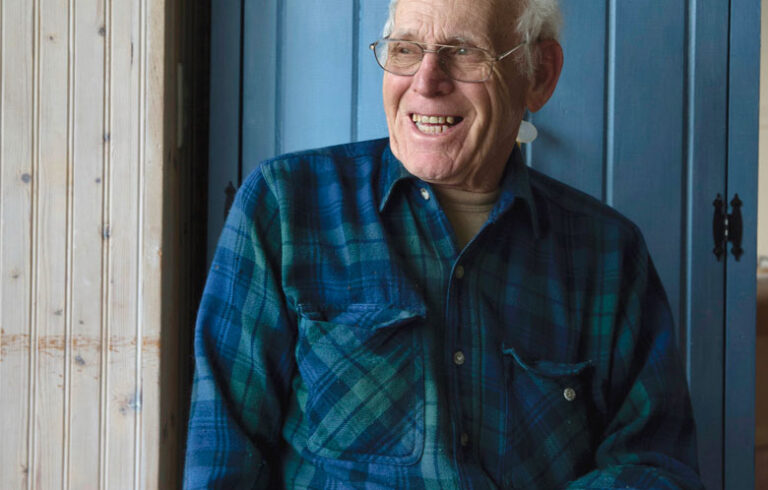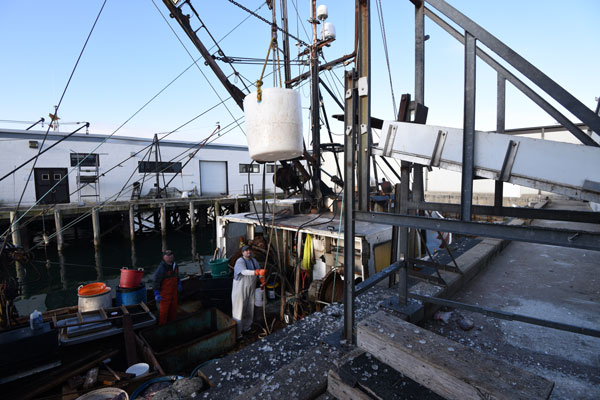
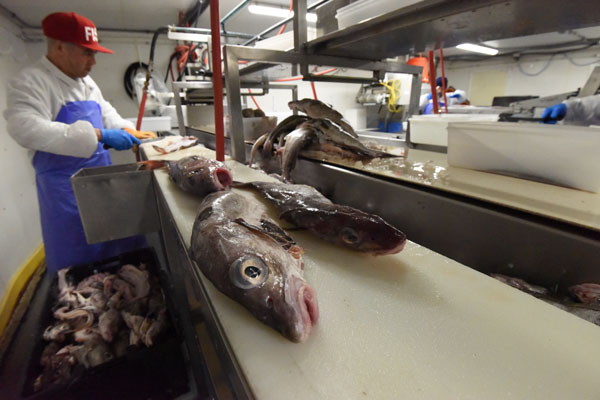
In October 2020 in the midst of the pandemic, Maine Coast Fishermen’s Association launched an initiative to help both fishermen and food-insecure families.
The Fishermen Feeding Mainers program provided financial relief to fishermen at a time when seafood markets were either shuttered or shaky, while also supplying food banks and families in need with seafood that was otherwise going unsold.
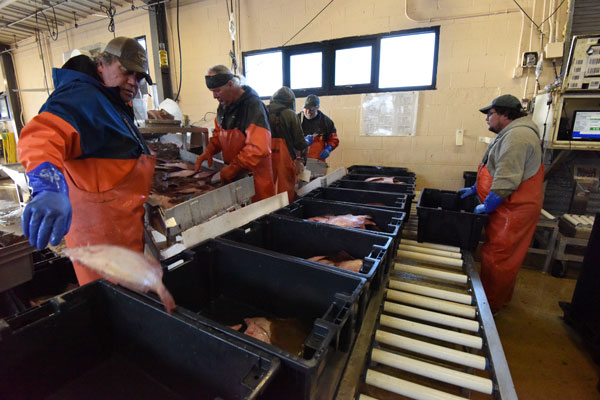
The Brunswick-based nonprofit purchased over 800,000 pounds of fish which provided more than a million seafood meals across a network of 250 food banks and 30 school districts. The program also supports local processors who cut and freeze the fish, infusing more than $2.2 million into the Maine economy.
COVID relief money and other funding streams, including grants from smaller foundations, supported the effort.
“COVID was the impetus for it,” said Mary Hudson, director of fisheries programs for the organization. “It was like, ‘How do we get guys fishing? There’s no market at all.’ Then, obviously, it’s a win-win with food insecurity.” Hudson said fishermen appreciated the help when the market bottomed out, but also were pleased to see local seafood reaching new markets, particularly schools.
She added that staff worked to navigate the logistics of transporting fish from Portland to places as far away as Ellsworth.
Fishermen Feeding Mainers is now shifting to an ongoing program to support the working waterfront and the blue economy, while tapping into the potential of other culinary traditions.
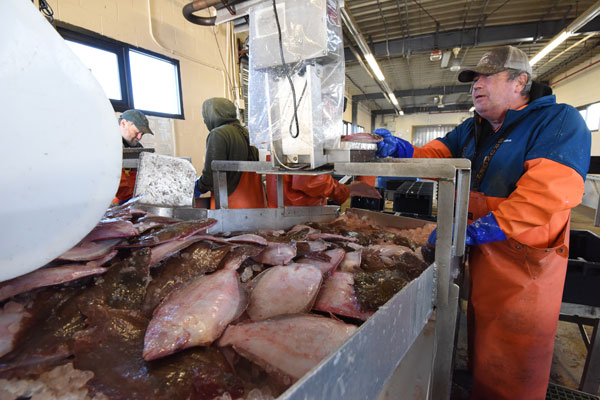
“The multicultural direction was really a surprise,” said Susan Olcott, director of operations at Maine Coast Fishermen’s Association. “Here are all of these people from different parts of the world who really love some of the fish that a lot of people from here don’t love,” she said. “There’s this cool new market opportunity to provide those fish at a cost that works for those people, whether it’s donated or purchased.”
The Fish Donation Program evolved within Fishermen Feeding Mainers to connect seafood with food pantries and community groups serving culturally diverse populations, including New Mainers and the Wabanaki.
“What do you like for fish? What species do you like and what preparations?” Olcott asks. “Do you want whole fish? Do you want head on? Do you want it gutted?”
Whole fish are popular among Arab and African populations, she said, which satisfy both cultural and religious traditions, diverging from the standard New England customer who wants a white fish filet. It’s an opportunity to use more seafood with less waste, resulting in more protein, reduced processing, sold at a lower cost, and, ultimately, more fish to provide.
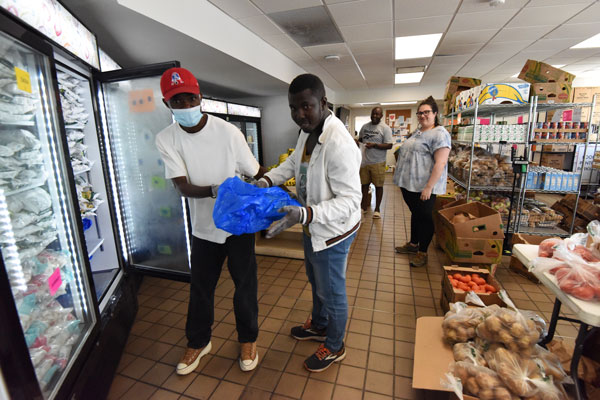
“They were saying, ‘We have these clients coming into the food pantry who cannot get enough whole grey sole.’ We have a hard time moving grey sole otherwise.”
MCFA’s Hudson’s reply was: “I’m going to get you thousands of pounds of grey sole,” Olcott reported. “The grey sole is really hard to skin, so you need a very skilled cutter. In October, which is generally one of the worst months on seafood prices, particularly on flatfish, I bought 60,000 pounds of grey sole and dabs,” a type of flatfish.
The potential that has emerged within multicultural markets extends beyond Maine. The Cambodian population of Lowell, Mass. has embraced whole fish.
“We brought 4,000 pounds of whole flounder to the Lowell Southeast Asian Water Festival in August,” Hudson said. All of the fish was sold within an hour. MCFA is working to develop a partnership with the grocery store there to offer whole fish.
The organization anticipates more community collaboration, including multilingual recipe cards and cookbooks, and community-style dinners.
